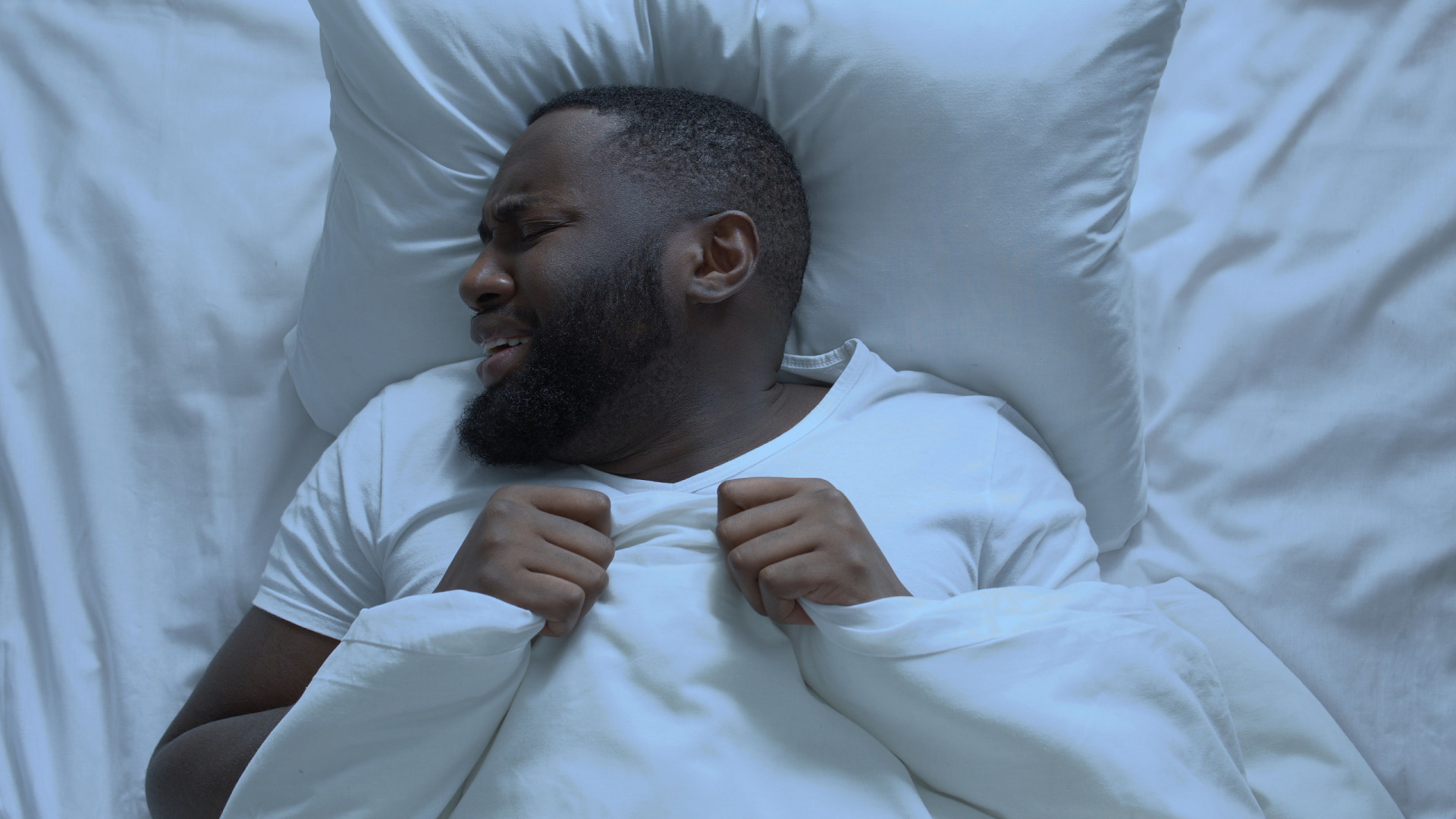Sleep Paralysis In Islam: A Fascinating Exploration Of The Spiritual And Scientific Perspective
Ever woken up feeling like you're trapped in your own body, unable to move, and maybe even sensing an eerie presence around you? That's sleep paralysis, and it’s something that has intrigued humans for centuries. In the Islamic context, this phenomenon takes on a whole new dimension, blending spiritual beliefs with scientific explanations. Today, we’re diving deep into the world of sleep paralysis from an Islamic perspective, exploring its causes, effects, and what Islam has to say about it. So buckle up, because this is going to be one wild ride!
Now, before we dive headfirst into the nitty-gritty, let’s set the stage. Sleep paralysis isn’t just some random occurrence—it’s a real and sometimes terrifying experience that affects millions of people worldwide. And when you throw religion into the mix, especially Islam, things get even more interesting. The Islamic interpretation of sleep paralysis often involves concepts like jinn, evil eye, and spiritual attacks, which adds a layer of complexity to understanding this phenomenon.
So, why should you care? Well, if you’ve ever experienced sleep paralysis or know someone who has, understanding it through the lens of Islam can provide both comfort and clarity. Plus, it’s always good to have a deeper understanding of how spirituality and science intersect, right? Let’s get started!
- Luxmovies Vip The Ultimate Streaming Experience You Deserve
- App1olamovies Your Ultimate Guide To Streaming Entertainment
What is Sleep Paralysis?
Sleep paralysis is basically a state where your mind is awake, but your body is still in a state of paralysis. It usually happens when you're transitioning between sleep stages, either falling asleep or waking up. During this time, your body is naturally paralyzed to prevent you from acting out your dreams—a process called REM atonia. But sometimes, your brain wakes up before your body, leaving you conscious but unable to move. Creepy, right?
Now, here’s the kicker: sleep paralysis isn’t just about being stuck in bed. Many people report feeling an oppressive presence, hearing strange sounds, or even seeing shadowy figures. These experiences can be downright terrifying, and that’s where the spiritual aspect comes into play, especially in Islamic teachings.
Sleep Paralysis in the Islamic Context
In Islam, sleep paralysis is often linked to spiritual phenomena. It’s not just a physical or psychological issue—it’s seen as a potential sign of spiritual distress. Many Muslims believe that sleep paralysis could be caused by jinn, which are unseen beings mentioned in the Quran. These jinn are believed to have the ability to influence humans, and some interpretations suggest they might be responsible for the sensations felt during sleep paralysis.
- Allmovieshubwiki Your Ultimate Movie Streaming Destination
- Yesmovie Ag Your Ultimate Streaming Destination Unveiled
Is Sleep Paralysis Mentioned in the Quran?
While the term "sleep paralysis" isn’t explicitly mentioned in the Quran, there are references to dreams, visions, and spiritual attacks that can be interpreted as related phenomena. For example, Surah Al-Mulk (67:1-2) talks about how Allah controls the state of sleep and wakefulness, hinting at the idea that sleep is a time when the soul is vulnerable to spiritual influences.
- The Quran emphasizes the importance of seeking refuge in Allah during times of fear or distress.
- Surah Al-Ikhlas (112) and Surah Al-Falaq (113) are often recited as protection against evil forces.
- Many scholars believe that sleep paralysis could be a form of waswas (whisperings of the devil), which is mentioned in Surah Al-An'am (6:112).
Causes of Sleep Paralysis in Islam
From an Islamic perspective, sleep paralysis can be caused by a variety of factors, both physical and spiritual. Here are some of the most common explanations:
Spiritual Causes
One of the primary spiritual causes of sleep paralysis in Islam is the influence of jinn. According to Islamic teachings, jinn are real beings that can interact with humans, and they might be drawn to individuals who are spiritually weak or neglectful of their religious duties. Another possibility is that sleep paralysis could be a result of waswas, where Shaytan whispers doubts and fears into a person’s mind.
Psychological and Physical Causes
Of course, sleep paralysis isn’t just a spiritual issue. There are plenty of scientific explanations for it too. Stress, sleep deprivation, and irregular sleep patterns can all contribute to the likelihood of experiencing sleep paralysis. In fact, studies show that people who sleep less than six hours a night are more prone to this phenomenon. So, it’s important to take care of your physical and mental health to minimize the risk.
How to Prevent Sleep Paralysis in Islam
If you’re looking for ways to protect yourself from sleep paralysis, Islam offers a variety of practical and spiritual solutions. Here are some tips to help you stay safe and sound:
Prayer and Supplication
One of the most powerful tools in Islam is prayer. Regularly performing your daily prayers and seeking refuge in Allah through du’a can provide protection against spiritual attacks. Reciting Surah Al-Fatiha, Surah Al-Baqarah, and other protective verses is highly recommended.
Adopting Good Sleep Habits
On the physical side, maintaining a healthy sleep routine is crucial. Try to go to bed and wake up at the same time every day, avoid caffeine before bedtime, and create a peaceful sleeping environment. These small changes can make a big difference in reducing the chances of experiencing sleep paralysis.
What to Do During Sleep Paralysis
So, what happens if you find yourself stuck in the middle of a sleep paralysis episode? Here’s what you can do:
- Stay calm and remind yourself that it’s temporary.
- Focus on your breathing and try to move your fingers or toes to break the paralysis.
- Recite short phrases like "La ilaha illallah" (There is no god but Allah) or "Astaghfirullah" (I seek forgiveness from Allah) to regain control.
Remember, sleep paralysis is not the end of the world. It might feel scary at the moment, but with the right mindset and actions, you can overcome it.
Scientific vs. Spiritual Perspective
Now, let’s talk about the big debate: science vs. spirituality. While scientists focus on the neurological and psychological aspects of sleep paralysis, Islamic teachings offer a more holistic view that incorporates the spiritual dimension. Both perspectives have their merits, and it’s up to each individual to decide which one resonates with them the most.
Can Science and Religion Coexist?
Absolutely! Many Muslims believe that science and religion are not mutually exclusive. In fact, they complement each other beautifully. Science helps us understand the mechanics of sleep paralysis, while religion provides guidance on how to deal with its spiritual implications. It’s all about finding a balance and embracing both aspects of the phenomenon.
Common Misconceptions About Sleep Paralysis in Islam
There are plenty of myths and misconceptions surrounding sleep paralysis in the Islamic community. Here are a few of the most common ones:
- It’s a curse: While sleep paralysis can feel like a curse, it’s not necessarily one. It’s more about spiritual weakness or imbalance rather than a direct punishment from Allah.
- You’re possessed: Sleep paralysis is not the same as possession. It’s a temporary state that can be managed with the right approach.
- It only happens to sinners: Anyone can experience sleep paralysis, regardless of their level of piety. It’s not a reflection of your spiritual standing.
Stories and Testimonials
One of the best ways to understand sleep paralysis in Islam is by hearing real-life stories from people who have experienced it. These personal accounts can provide valuable insights into how different individuals cope with the phenomenon and find peace through their faith.
Real-Life Example
Take, for example, the story of Ahmed, a devout Muslim who started experiencing sleep paralysis after a particularly stressful period in his life. At first, he was terrified and thought he was being attacked by jinn. But after seeking guidance from his local imam and adopting a more disciplined spiritual routine, he was able to overcome his fear and reduce the frequency of his episodes.
Conclusion: Embracing the Unknown
In conclusion, sleep paralysis in Islam is a fascinating topic that blends science, spirituality, and personal experience. Whether you view it through a scientific lens or a spiritual one, the key is to approach it with an open mind and a strong faith. By understanding the causes, effects, and remedies of sleep paralysis, you can empower yourself to face this phenomenon with confidence.
So, what’s next? If you’ve enjoyed this article, feel free to share it with your friends and family. And if you have any questions or experiences of your own, drop them in the comments below. Let’s keep the conversation going!
Table of Contents
- What is Sleep Paralysis?
- Sleep Paralysis in the Islamic Context
- Is Sleep Paralysis Mentioned in the Quran?
- Causes of Sleep Paralysis in Islam
- Spiritual Causes
- Psychological and Physical Causes
- How to Prevent Sleep Paralysis in Islam
- What to Do During Sleep Paralysis
- Scientific vs. Spiritual Perspective
- Common Misconceptions About Sleep Paralysis in Islam
- Stories and Testimonials
- Streaming Wars Why Fmovies Is A Controversial But Irresistible Option
- Netmovies Alternative The Ultimate Guide To Streaming Movies Online

Sleep Paralysis Looks Different in Different Places TIME

What is sleep paralysis? A sleep expert explains all TechRadar

Sleep paralysis the scariest seconds you can experience